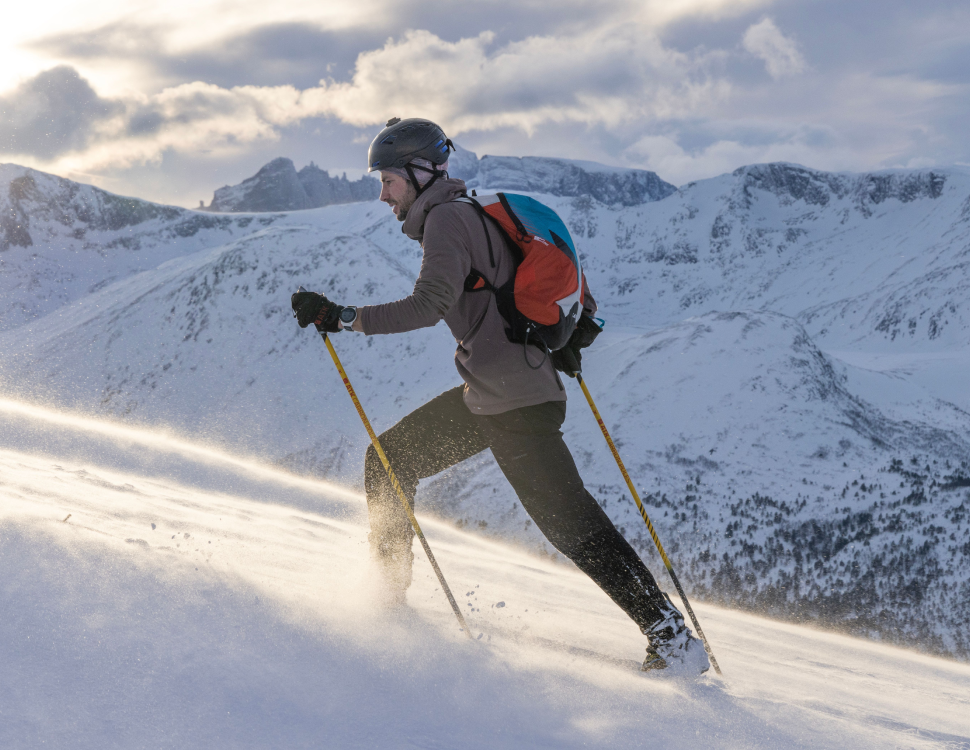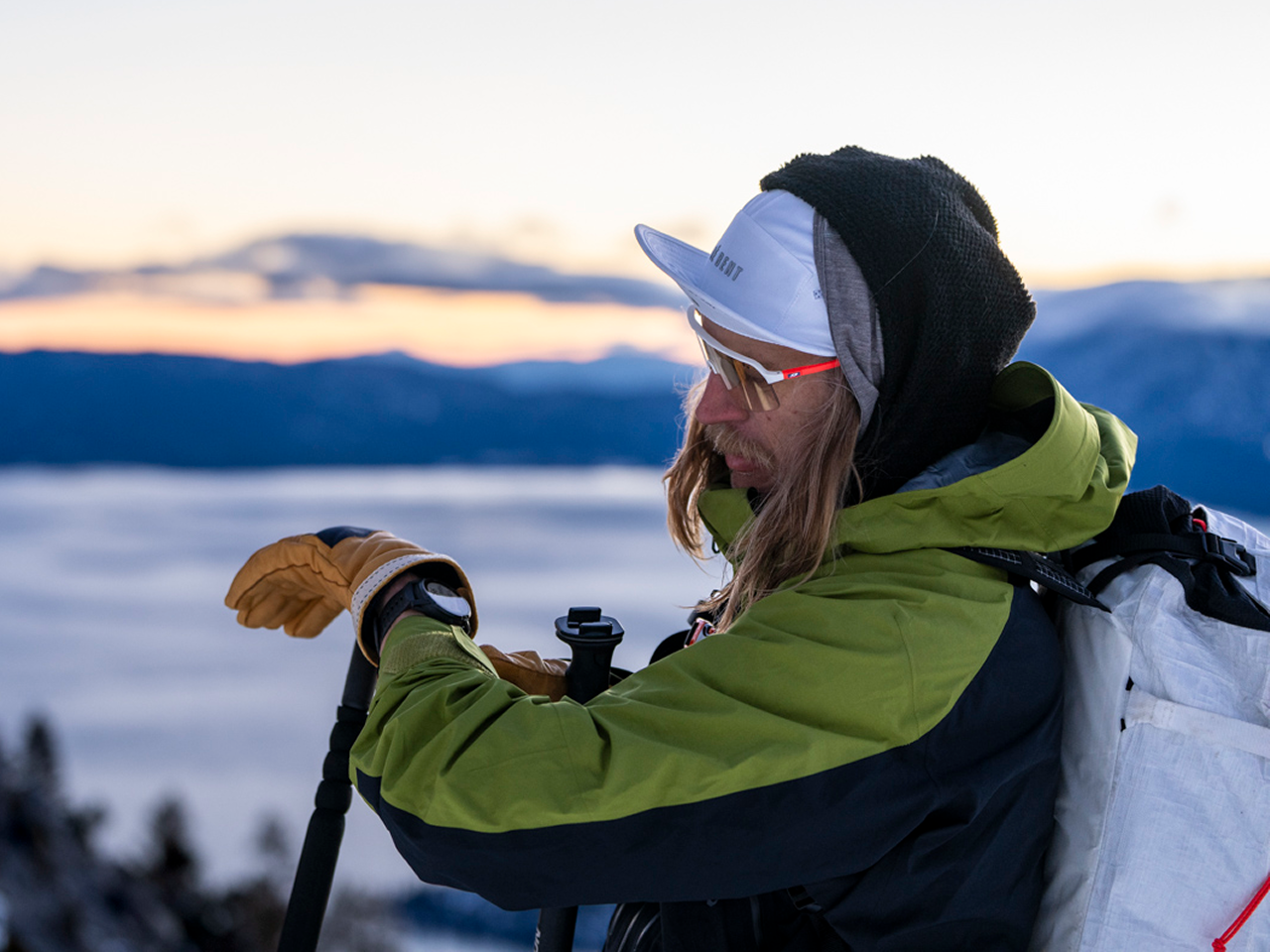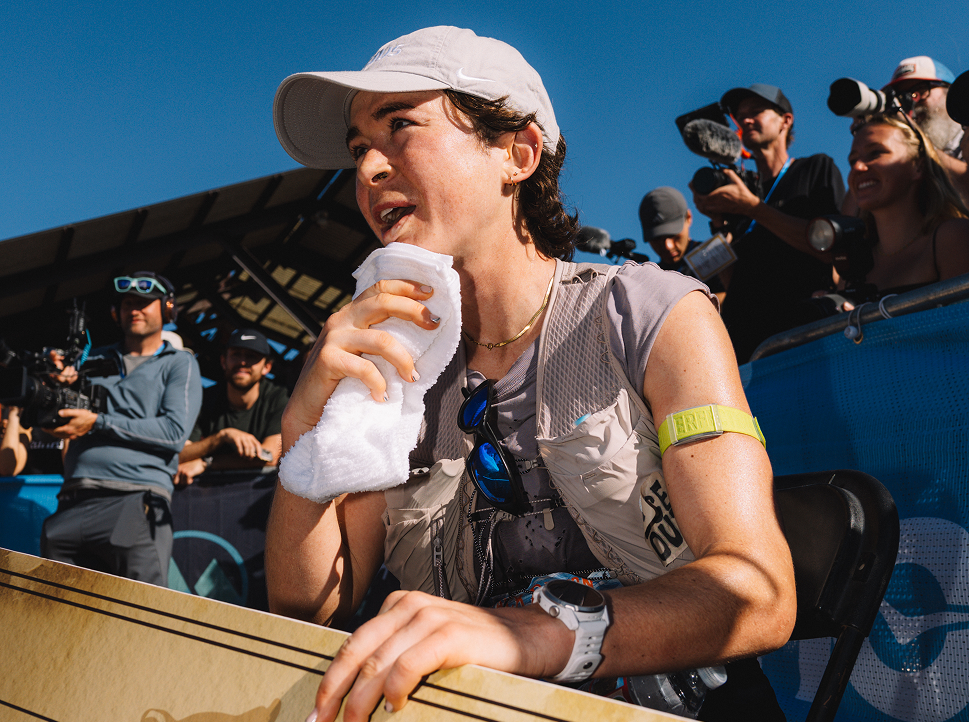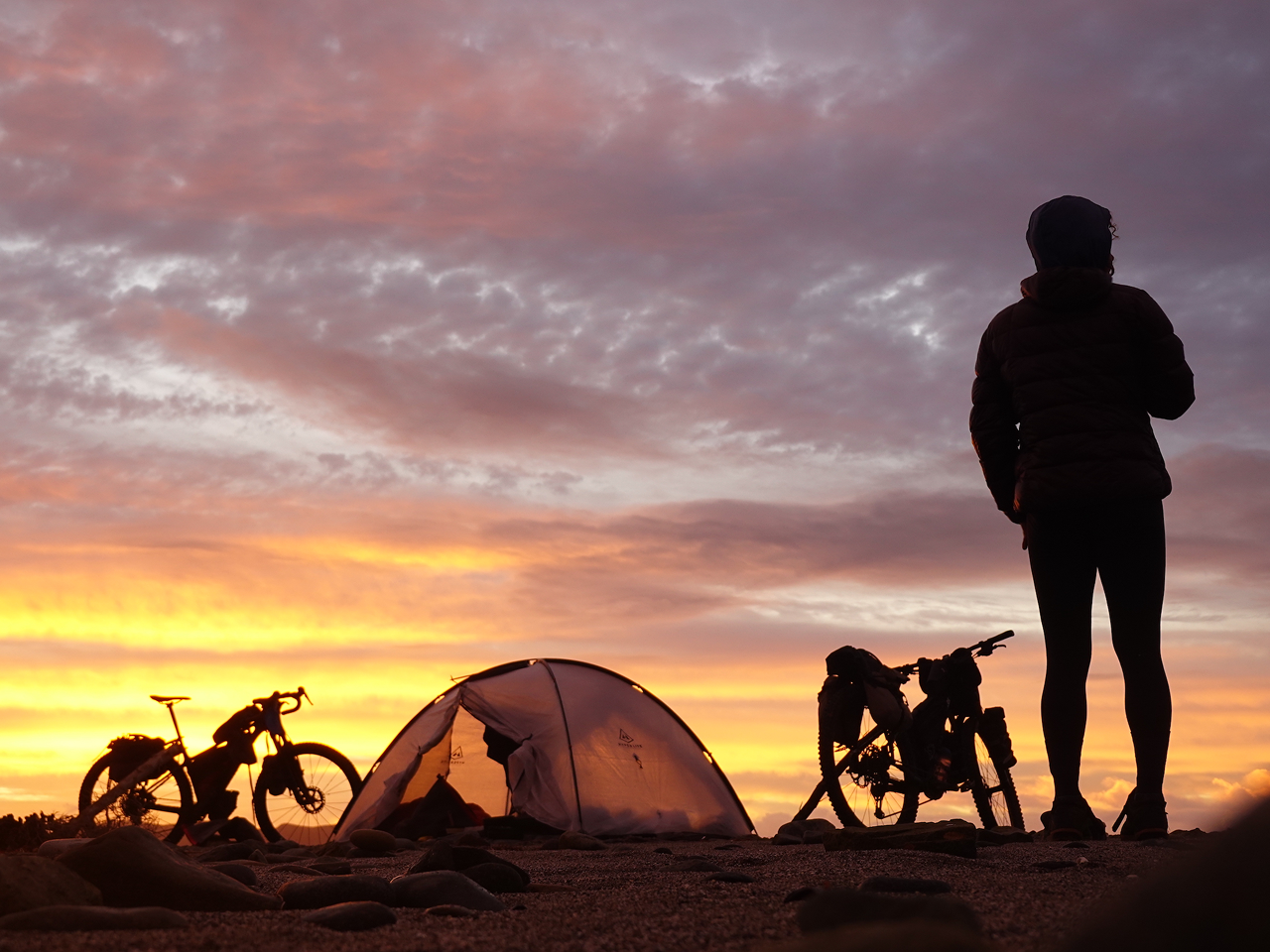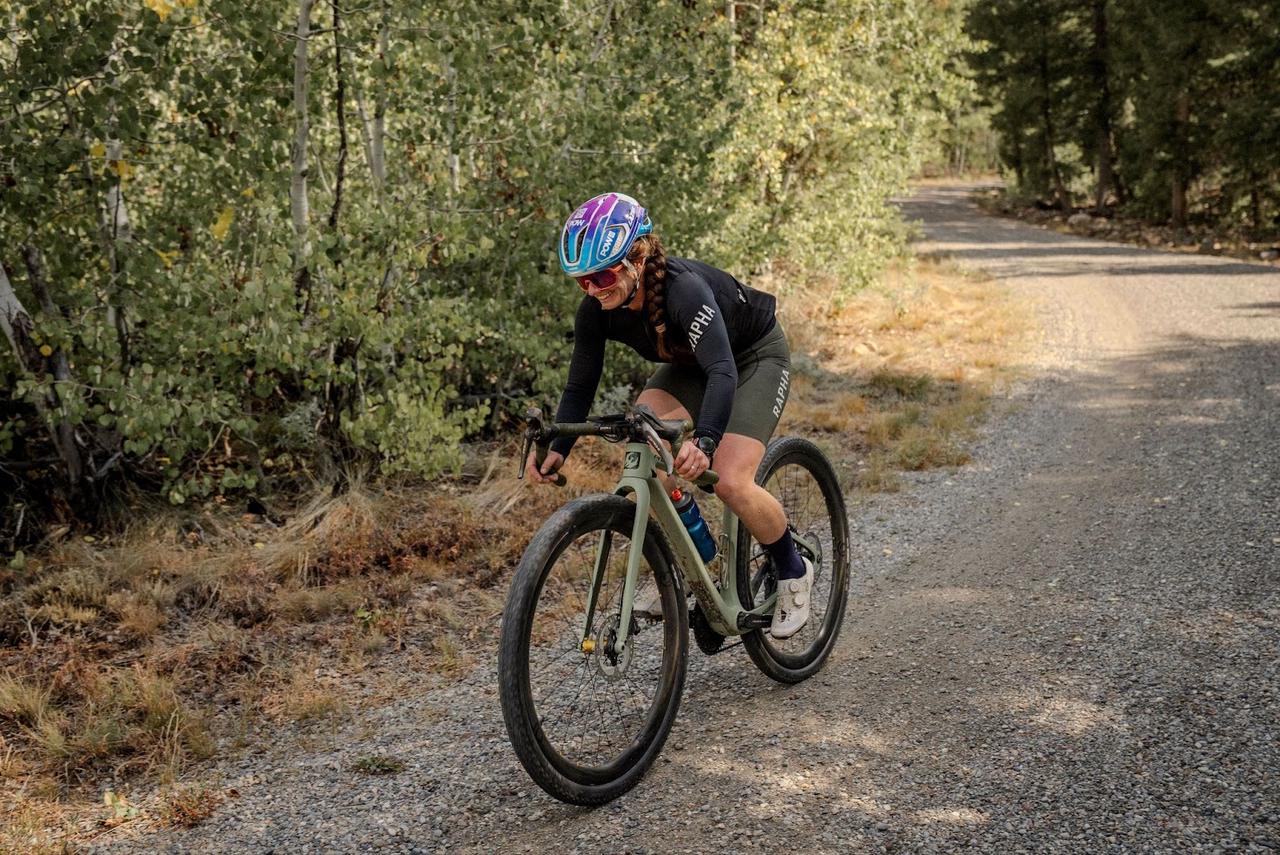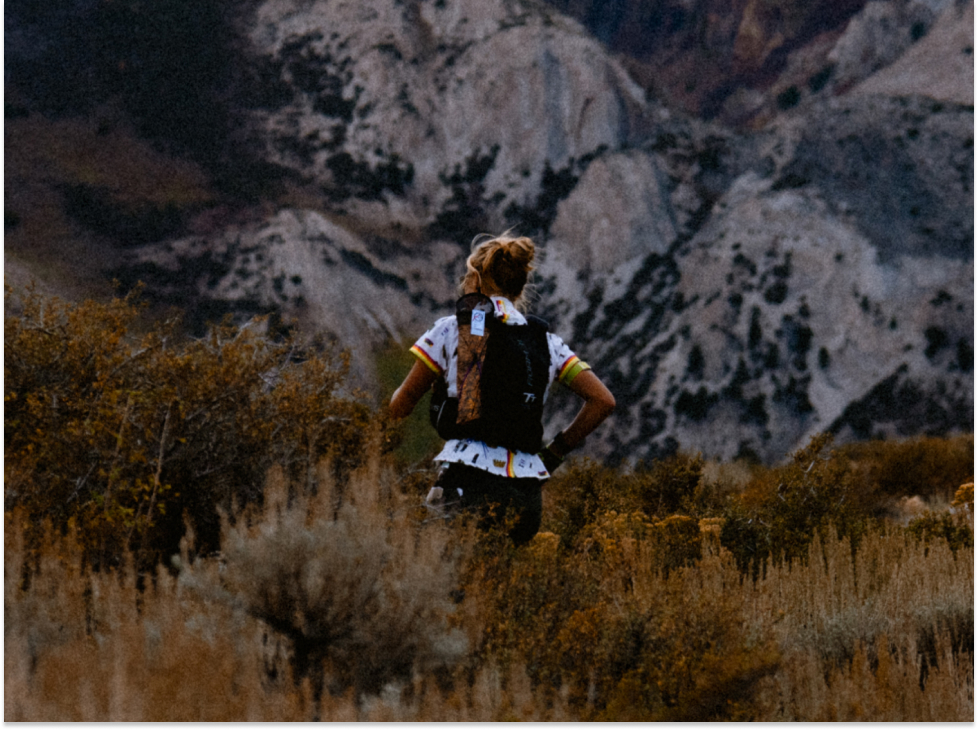On July 13th, ultra-endurance athlete Josefine Rutkowski will begin one of the most ambitious physical challenges ever attempted: completing 60 full-distance Ironmans in 60 days, doubling the current female world record. Known as Project 60, the undertaking will demand consistency, recovery, and teamwork on a level that goes far beyond traditional racing.
A Shift in Mindset: From Racing to Repeating
Unlike her prior Ironman races, where performance was judged by time, Project 60 is about repeatability. Josefine doesn’t have a finish-line clock in mind. Her goal is to “be like a train”: reliable, steady, and on a predictable schedule day after day.
That shift started with how she approaches training itself. She no longer follows a rigid plan. Instead, she made decisions each morning based on how she feels. Some days that meant scaling back. Others, it meant long hours in the saddle.
"I have a mental coach, and we talk about my mindset that I switch from competition to more adventure or playing. So every morning, my goal is to be more like a child. I go out and I play."
Building Daily Durability
To prepare for twelve to thirteen hours of activity each day during Project 60, Josefine has trained consistently between five and seven hours daily. That workload is divided into a morning swim, a long ride, and either a run or strength and mobility work in the evening.
The training day starts in the water at 7:30AM, a routine that is about as ingrained as brushing her teeth. The bike ride follows, often on a flat loop like the one she’ll use during the project. In the afternoon, Josefine has been pacing her runs conservatively during training to align with her goal project pace of ~5:00–5:30/km.
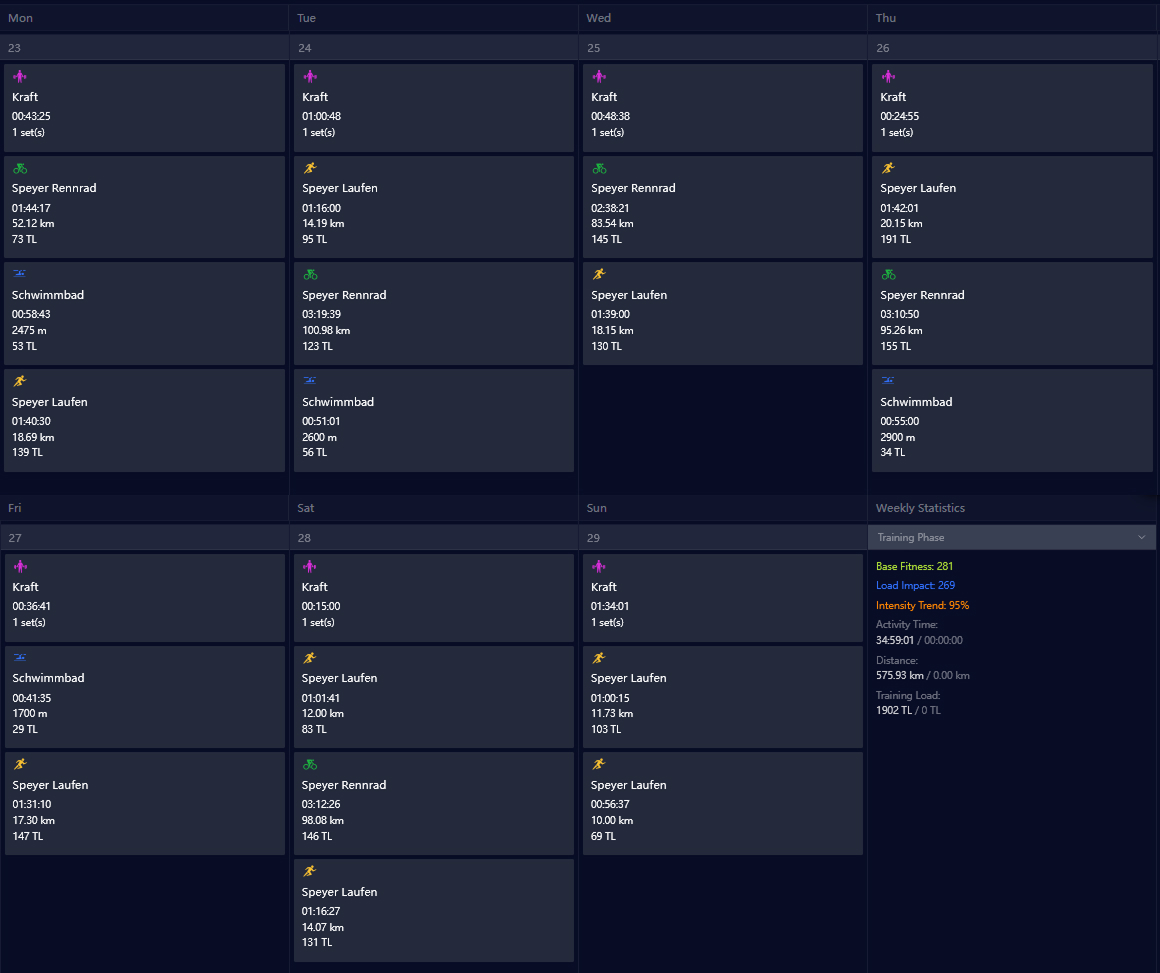
A sample week from Josefine's training
A typical day includes all three disciplines, plus strength work. Though she listens to her body and adjusts often.
"Yoga and meditation are also a big part of every day," she says, though those sessions are intentionally left untracked. Their role is less about metrics and more about mental and physical maintenance.
Team Coordination: Structure Behind the Scenes
To pull off 60 Ironmans in 60 days, Josefine won't be alone. Her core team includes:
- Her father (logistics and transport)
- Her stepmother (mental coach and chef)
- Jonas Deichmann (boyfriend, safety support and Project 120 world record holder)
- Marcus (on-bike nutrition and pacing)
- Tobias (course design and daily setup)
"I have a lot of good people around me. They support me. They always have the right words, and that's why I think I'm able to be prepared in a healthy way. I cannot do it alone. We need each other, and everybody is important."
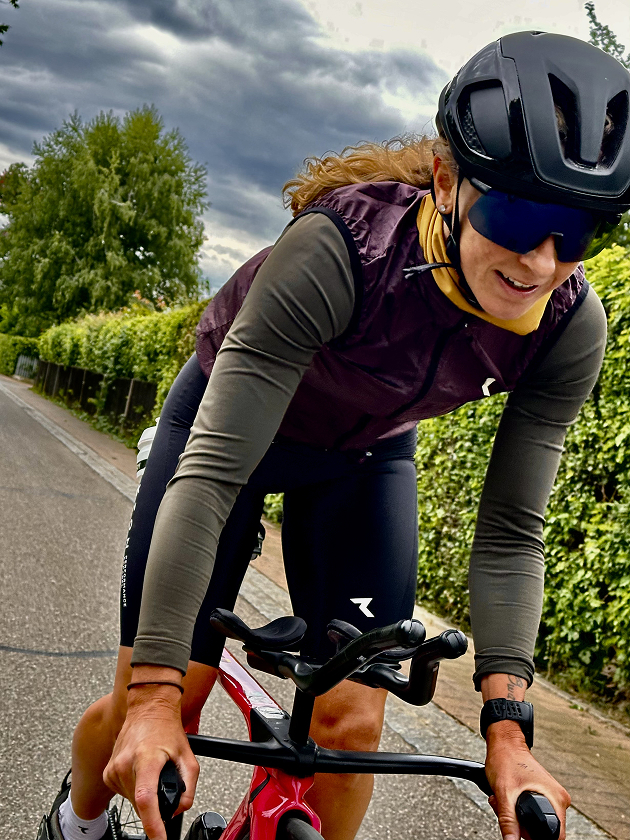
To reduce variables, the team will follow the exact same course every day. The location of choice will be Dudenhofen/Speyer. They’ve already tested the full course in an effort to reduce surprises and maximize efficiency.
"For a project like this, it's important that there is less new stuff so you can be focused. And for my team, I think it's easier for them to prepare everything. They have to care about themselves, too. When they know what time I arrive, they also know when they can relax for a short time. I think it's easier for everybody."
Anticipating the Challenges
Josefine knows that even the best preparation can’t eliminate every challenge. The biggest variable, she says, is the run. While she’s built up volume with confidence, it remains the part of the day most likely to create fatigue or injury over time. To reduce risk, she’s pulled back slightly on run frequency in the final weeks before the project begins.
Weather is another wildcard. The bike course is flat and familiar, but headwinds could significantly increase daily ride time.
"When the wind is not on my side, I need more time on the bicycle, but when the wind is on my side, I can be super fast."
Her cycle also affects pacing and energy. On certain days, she anticipates needing to adjust effort depending on how she feels hormonally. That means staying flexible even within a rigid daily structure.
"I think the female cycle will be a big, big thing for me, because there is less energy in certain parts. And because you have less energy in your body, you need more energy to eat, so I cannot eat the same amount of food every day. I have to be super honest with my team, and this will be a challenge for myself."
The Data Says She’s Ready
Her Base Fitness has reached an all-time high (higher than 99.96% of COROS athletes), and is still climbing. While her running volume has tapered slightly to protect against pre-project fatigue, she’s maintained steady load across swim and bike.
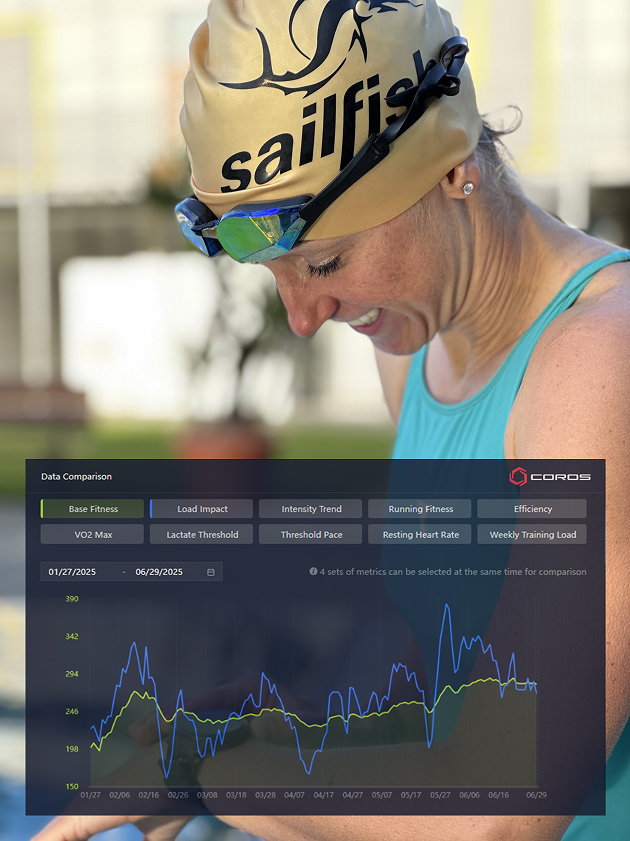
Josefine's long-term fitness
In these final weeks, Josefine has prioritized consistency and self-restraint. She's perfected her routine and adjusted when needed. Rather than pushing for more on days where she feels good, she’s stuck to the plan. Her priority is arriving healthy and mentally ready to take on each day of the project. Every decision has been made with the long game in mind.
"The project starts on July 13. And to be honest, I'm ready."

/filters:quality(90)/fit-in/970x750/coros-web-faq/upload/images/05202cc8fcd2ca51472f9c29d66e4da4.jpg)
